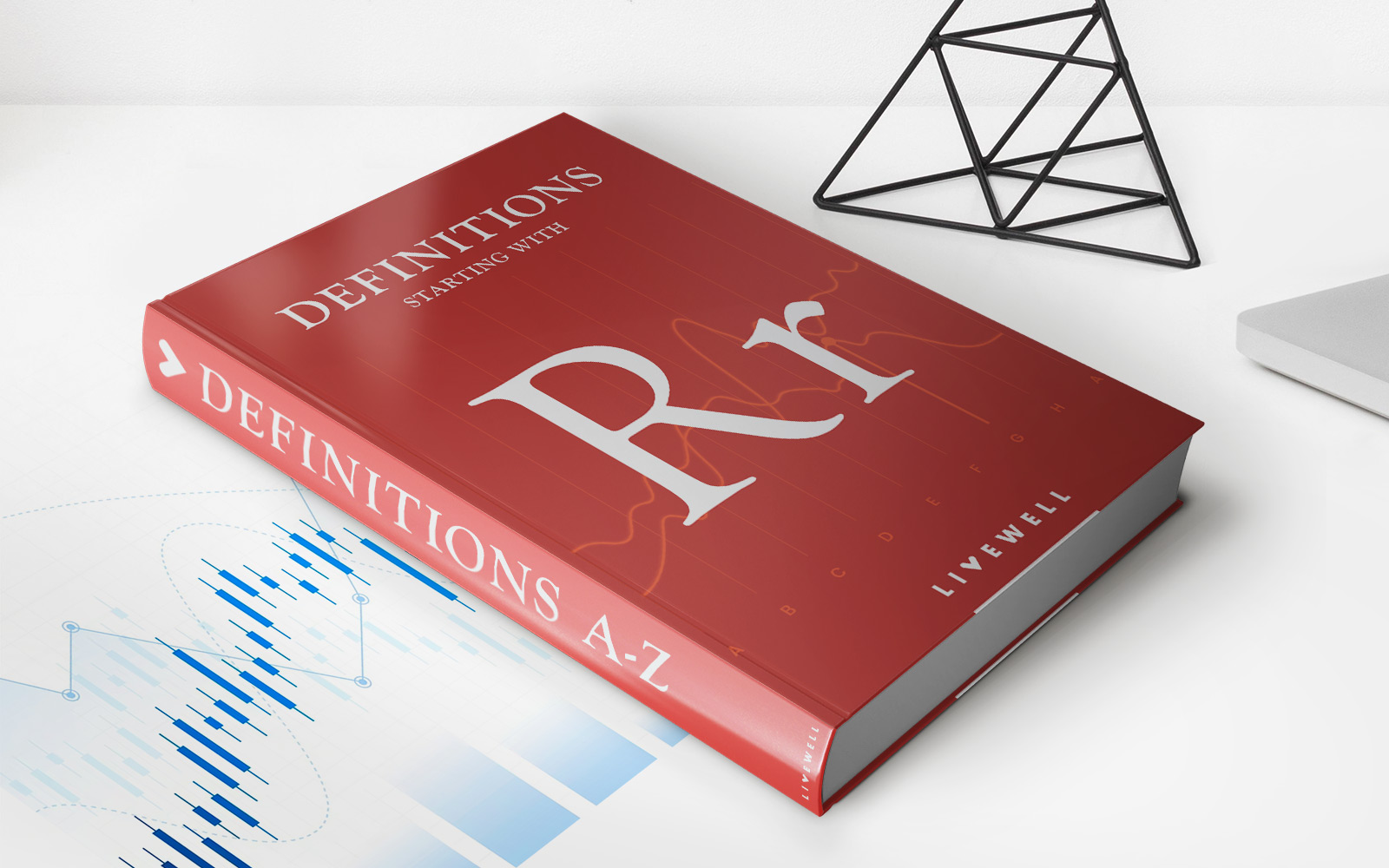

Finance
What Is TORT Insurance?
Modified: February 21, 2024
Learn all about TORT insurance and how it plays a crucial role in the world of finance. Discover its benefits, coverage, and why it is essential for protecting your financial assets.
(Many of the links in this article redirect to a specific reviewed product. Your purchase of these products through affiliate links helps to generate commission for LiveWell, at no extra cost. Learn more)
Table of Contents
Introduction
In the world of insurance, there are many types of coverage available to protect individuals and businesses from various risks. One such type is tort insurance. Tort insurance provides coverage for legal claims or lawsuits arising from torts, which are civil wrongdoings that result in injury, damage, or harm to another person or their property.
Tort insurance plays a crucial role in the financial security of individuals and organizations, as it helps provide compensation for the losses and damages caused by negligence, accidents, or intentional acts. This type of insurance is particularly important in industries where the risk of lawsuits and liability is high, such as healthcare, manufacturing, and construction.
Understanding the fundamentals of tort insurance is essential for individuals and businesses alike. In this article, we will delve into the intricacies of tort insurance, including the various types of coverage, the benefits it offers, factors to consider when choosing a policy, and how to file a tort insurance claim.
Whether you are a business owner looking to safeguard your organization from potential legal claims or an individual seeking personal protection, gaining a clear understanding of tort insurance will help you make informed decisions about your insurance needs.
So, let’s dive in and explore the world of tort insurance to better understand its significance and how it can provide valuable protection in times of need.
Understanding Tort Insurance
Tort insurance, also known as liability insurance, is a type of coverage that protects individuals and businesses from the financial consequences of legal claims or lawsuits arising from torts. A tort is a civil wrongdoing that causes harm or injury to another person or their property, and tort insurance provides financial protection in the event of such claims.
Tort insurance covers various types of torts, including negligence, intentional acts, and strict liability. Negligence claims arise when a person or entity fails to exercise reasonable care, resulting in harm to another party. Intentional acts involve deliberate actions that cause harm or injury. Strict liability claims can arise in situations where a product or activity is inherently dangerous, even if all necessary precautions are taken.
For example, imagine a scenario where a customer slips and falls in a grocery store due to a wet floor that was not properly marked or cleaned. In such a case, the injured customer may file a lawsuit against the store for negligence. Tort insurance would provide coverage for the store’s legal defense costs and any potential settlement or damages awarded to the customer.
Tort insurance is not only applicable to businesses but also individuals. For instance, if a homeowner’s dog bites a neighbor, the homeowner’s liability insurance policy would likely cover the legal expenses and damages resulting from the incident.
It’s important to note that tort insurance coverage limits and exclusions vary depending on the policy. The amount of coverage provided by tort insurance is typically stated as a limit per occurrence and an aggregate limit per policy period. This means that the insurance policy will pay up to a certain amount for each claim made against the policy, and there is a maximum amount that the policy will pay for all claims during the policy period.
Understanding the specifics of tort insurance is crucial to ensure that you have the right coverage in place to protect yourself or your business from potential legal claims. It is recommended to consult with an insurance professional who can help assess your needs and guide you in selecting the appropriate tort insurance policy.
Types of Tort Insurance Coverage
Tort insurance coverage comes in various forms, each designed to protect against specific types of torts or liabilities. Here are some common types of tort insurance coverage:
- General Liability Insurance: This is the most basic and widely used form of tort insurance coverage. It provides protection against claims of bodily injury, property damage, or personal injury caused by negligence or accidents on your premises or arising from your operations. General liability insurance typically covers legal defense costs, settlements, and judgments.
- Professional Liability Insurance: Also known as errors and omissions insurance, professional liability insurance is essential for individuals and businesses in professional services industries. It protects against claims of professional negligence or errors that result in financial loss, bodily injury, or property damage to clients or third parties. Professions such as doctors, lawyers, architects, and consultants often carry professional liability insurance.
- Product Liability Insurance: This type of coverage is especially important for manufacturers, distributors, and retailers. Product liability insurance protects against claims arising from defective or dangerous products that cause harm or injury to consumers. It covers legal defense costs, settlements, and judgments related to product liability claims.
- Employment Practices Liability Insurance (EPLI): EPLI coverage protects businesses from claims related to employment practices, such as discrimination, wrongful termination, sexual harassment, or other employment-related issues. EPLI provides coverage for legal defense costs, settlements, and judgments.
- Directors and Officers (D&O) Liability Insurance: D&O insurance protects directors and officers of a company from personal liability in claims related to their actions or decisions taken on behalf of the organization. It covers legal defense costs, settlements, and judgments arising from such claims.
It’s important to note that the specifics of tort insurance coverage can vary between insurance providers and policies. Some policies may have additional coverage options or exclusions. Consulting with an insurance professional can help you determine the types of coverage that best suit your specific needs.
By understanding the various types of tort insurance coverage available, you can ensure that you have adequate protection against potential legal claims or lawsuits arising from different torts or liabilities.
Benefits of Tort Insurance
Tort insurance offers several benefits to individuals and businesses alike. Here are some key advantages of having tort insurance coverage:
- Financial Protection: One of the primary benefits of tort insurance is financial protection. Lawsuits and legal claims can result in substantial financial losses, including legal defense costs, settlements, and judgments. Tort insurance helps mitigate these expenses by covering the costs associated with defending against claims and providing compensation for damages awarded by the court.
- Peace of Mind: Having tort insurance in place provides peace of mind, knowing that you are protected against potential legal claims or lawsuits. Whether you are an individual or a business owner, the knowledge that you have insurance coverage can alleviate the stress and uncertainty that comes with the risk of facing legal actions.
- Business Continuity: For businesses, tort insurance is crucial for ensuring business continuity. Lawsuits can be financially devastating and may even lead to bankruptcy in some cases. Having tort insurance enables businesses to manage their risks and continue their operations without the fear of being crippled by legal liabilities.
- Enhanced Reputation: By carrying tort insurance, businesses can enhance their reputation and credibility in the eyes of clients, partners, and stakeholders. It demonstrates a commitment to responsible business practices and an ability to handle potential legal risks, thereby instilling confidence in customers and business partners.
- Compliance with Legal Requirements: In certain industries or jurisdictions, carrying tort insurance may be a legal requirement. This is particularly common in professions where the risk of potential liabilities is high, such as healthcare, construction, or consulting. Having the appropriate tort insurance coverage ensures compliance with legal obligations and helps avoid penalties or legal consequences.
It’s important to review your specific insurance policy to fully understand the benefits and coverage it provides. Additionally, consulting with an insurance professional can help you assess your risks and tailor your tort insurance coverage to your individual or business needs.
Overall, tort insurance offers valuable protection and peace of mind, enabling individuals and businesses to navigate potential legal claims and ensure their financial stability and continued operations.
Factors to Consider When Choosing Tort Insurance
When selecting tort insurance coverage, it’s important to consider several factors to ensure that you have the most appropriate and effective protection for your needs. Here are some key factors to consider:
- Type of Business or Industry: Different industries have varying levels of risk and liability exposures. The type of business you operate will heavily influence the type and amount of tort insurance coverage you need. For example, a construction company may require higher liability limits compared to a retail store.
- Risk Assessment: Conduct a thorough risk assessment to identify potential risks and liabilities specific to your business. Understanding the unique risks you face will help you determine the necessary coverage limits and types of tort insurance. Consider potential risks related to the products or services you offer, your premises, and the activities you engage in.
- Coverage Limits: Evaluate the coverage limits provided by different tort insurance policies. The coverage limits should be sufficient to cover potential legal defense costs, settlements, and judgments. Consider factors such as the size of your business, the potential severity of claims, and your financial ability to absorb any uncovered costs.
- Deductibles and Premiums: Review the deductibles and premiums associated with tort insurance policies. A deductible is the amount you are responsible for paying out of pocket before the insurance coverage kicks in. Balance your budget and risk tolerance to choose an appropriate deductible. Compare premiums from different insurance providers to ensure you are getting a competitive rate.
- Policy Exclusions: Carefully review the policy exclusions to understand what is not covered by the tort insurance policy. Exclusions can vary between different policies and providers. Ensure that the policy does not exclude important risks specific to your business or industry.
- Claims Process: Assess the claims process and the reputation of the insurance provider in handling claims efficiently and fairly. Read reviews and seek recommendations from other policyholders to ensure that the insurer has a track record of prompt and fair claims settlement.
- Additional Coverages: Consider any additional coverages or endorsements that may be beneficial to your specific needs. These can include cyber liability insurance, employment practices liability insurance, or employee dishonesty coverage. Tailor your policy to cover the specific risks you face.
- Insurance Provider: Working with a reputable and experienced insurance provider is crucial when it comes to tort insurance. Research the financial stability and reputation of the insurance company before making a decision. Consider factors such as their claims handling process, customer service, and their history of providing reliable coverage.
By carefully considering these factors and consulting with an insurance professional, you can select the right tort insurance coverage that adequately protects your business or personal assets from potential legal claims and liabilities.
How to File a Tort Insurance Claim
Filing a tort insurance claim may seem like a daunting process, but understanding the steps involved can help simplify the procedure. Here is a general overview of how to file a tort insurance claim:
- Notify Your Insurance Provider: As soon as you become aware of a situation that may lead to a tort claim, such as an accident or injury, notify your insurance provider immediately. Most insurance policies have specific provisions requiring prompt notification of potential claims. Failure to notify the insurer promptly could result in denial of coverage.
- Gather Documentation: Collect all relevant documentation related to the incident, including incident reports, photos, witness statements, medical records, and any other evidence that supports your claim. The more comprehensive and detailed your documentation, the stronger your case will be.
- Contact Law Enforcement (if necessary): In the event of a serious accident or injury, it is important to contact law enforcement and file a police report. This will provide an official record of the incident, which can be valuable evidence for your claim.
- Cooperate with the Insurance Provider: Work closely with your insurance provider throughout the claims process. Understand their requirements and provide all requested information and documentation promptly. Be prepared to answer any questions they may have and provide any additional information as needed.
- Engage Legal Representation (if necessary): In complex or high-value tort claims, it may be advisable to engage the services of an attorney specializing in tort law. They can provide legal advice, negotiate on your behalf, and ensure that you receive fair compensation.
- Attend Mediation or Settlement Negotiations: In many cases, the insurance provider may attempt to resolve the claim through mediation or settlement negotiations. Attend these meetings or discussions with your legal representation, if applicable, and work towards a fair and equitable resolution.
- File a Lawsuit (if necessary): If a settlement cannot be reached, or if the insurance provider denies the claim, you may need to file a lawsuit to pursue your claim. This step should only be taken after careful consideration and consultation with an attorney.
- Follow the Court Process: If you proceed with a lawsuit, follow the court process as directed by your attorney. This may include attending court hearings, providing evidence, and presenting your case before a judge or jury.
- Receive Compensation: If the court rules in your favor or a settlement is reached, you will receive compensation for your damages, including medical expenses, property damage, lost wages, and pain and suffering (if applicable).
Remember, the specific procedures for filing a tort insurance claim may vary based on the policy and the circumstances of the claim. It is important to review your insurance policy and consult with your insurance provider to understand the specific steps and requirements for filing a claim.
By following these guidelines and seeking appropriate legal advice, if necessary, you can navigate the process of filing a tort insurance claim and work towards obtaining the compensation you deserve.
Limitations and Exclusions of Tort Insurance
While tort insurance provides valuable coverage against legal claims and liabilities, it’s important to be aware of the limitations and exclusions that are commonly found in these policies. Understanding these limitations and exclusions can help you set realistic expectations and ensure that you have appropriate coverage for your specific needs. Here are some typical limitations and exclusions of tort insurance:
- Intentional Acts: Most tort insurance policies exclude coverage for intentional acts. This means that if you deliberately cause harm or injury to someone or purposefully engage in wrongful conduct, your tort insurance policy may not cover any resulting legal claims or liabilities.
- Criminal Actions: Acts that are considered criminal, such as fraud or embezzlement, are generally excluded from tort insurance coverage. If you engage in criminal activities and face legal consequences, your tort insurance policy is unlikely to provide coverage for any resulting claims or liabilities.
- Prior Knowledge: Tort insurance policies often have a provision that excludes coverage for claims arising from acts or incidents that you were aware of before obtaining the policy. This means that if you were aware of a potential claim or incident before purchasing the coverage, the insurance company may deny coverage for that particular claim.
- Contractual Liability: Tort insurance typically does not cover claims arising from liabilities assumed under a contract. Liability that is specifically assumed through a contractual agreement is generally excluded from tort insurance coverage. Businesses should consider obtaining additional liability coverage specific to their contractual obligations.
- Punitive Damages: Punitive damages, which are intended to punish a defendant and deter similar behavior, are often excluded from tort insurance coverage. While a tort insurance policy may cover compensatory damages, punitive damages are typically not covered. Some policies may offer limited coverage for punitive damages, but it is essential to review the policy carefully to understand the terms and limits.
- Professional Services: Tort insurance policies may have limitations or exclusions for claims arising from professional services. Professionals in fields such as medicine, law, accounting, or architecture may need to secure specialized professional liability insurance to cover claims related to their professional services.
- Known Prior Claims: If you have prior knowledge of a claim or lawsuit, it may be excluded from coverage under your tort insurance policy. Insurance companies often exclude coverage for claims that were pending or known to exist before the policy’s effective date.
It is important to carefully review the terms and conditions of your tort insurance policy, including its limitations and exclusions, to fully understand the extent of your coverage. Additionally, consulting with an insurance professional can help you navigate these limitations and exclusions and ensure that you have appropriate coverage for your specific needs.
By being aware of these limitations and exclusions, you can make informed decisions about your insurance coverage and consider additional policies or endorsements to address any gaps in your protection.
Tort Insurance vs. Other Types of Insurance
Tort insurance is just one type of insurance coverage among many others available in the market. Understanding the differences between tort insurance and other types of insurance can help individuals and businesses make informed decisions about their insurance needs. Here, we will explore the distinctions between tort insurance and other common types of insurance:
- Property Insurance: Property insurance provides coverage for physical assets, such as buildings, equipment, and inventory, against damage or loss due to perils like fire, theft, or natural disasters. While property insurance focuses on protecting physical property, tort insurance specifically addresses legal claims and liabilities arising from torts, such as personal injury or property damage caused by negligence or accidents.
- Auto Insurance: Auto insurance is a specific type of insurance that provides coverage for vehicles against accidents, theft, or damage. While auto insurance covers physical damage to the vehicle and liability arising from accidents, tort insurance focuses on the legal aspects of accidents or injuries caused by negligence or other civil wrongdoings.
- Health Insurance: Health insurance provides coverage for medical expenses and healthcare services. It is designed to help individuals manage the costs of medical treatment and services. Tort insurance, on the other hand, focuses on legal claims and liabilities related to personal injury or harm caused by negligence, intentional acts, or other torts.
- Professional Liability Insurance: Professional liability insurance, also known as errors and omissions insurance, provides coverage for professionals against claims arising from errors, omissions, or negligence in the performance of their professional duties. While tort insurance can cover some aspects of professional liability, professional liability insurance is specifically tailored to address the unique risks and legal claims faced by professionals in various fields.
- Workers’ Compensation Insurance: Workers’ compensation insurance is a type of insurance that provides coverage for employees in the event of work-related injuries or illnesses. It covers medical expenses, lost wages, and rehabilitation costs. Tort insurance, on the other hand, covers legal claims and liabilities arising from torts, including those related to workplace accidents or injuries.
It’s important to note that these types of insurance often complement one another to provide comprehensive coverage. For example, a business may have both tort insurance to protect against legal claims and property insurance to cover physical assets. Evaluating your specific needs, risks, and legal obligations will help you determine which types of insurance are necessary for your personal or business situation.
Consulting with an insurance professional is recommended to assess your specific needs, understand the various types of insurance coverage available, and create a comprehensive insurance plan that adequately protects you or your business.
Conclusion
Tort insurance plays a vital role in protecting individuals and businesses from the financial consequences of legal claims and liabilities arising from civil wrongdoings. Whether it’s a case of negligence, intentional acts, or strict liability, having the right tort insurance coverage can provide peace of mind and financial security in the face of potential lawsuits.
Understanding the various types of tort insurance coverage, such as general liability insurance, professional liability insurance, and product liability insurance, allows individuals and businesses to identify the most suitable coverage for their needs. Conducting a risk assessment, considering industry-specific requirements, and carefully examining policy limits and exclusions are essential steps in selecting the appropriate tort insurance coverage.
While tort insurance offers significant benefits, it is important to be aware of its limitations and exclusions. Knowing what is not covered by your policy can help you effectively manage risks and consider additional coverage options such as professional liability insurance or cyber liability insurance to fill any potential gaps.
When it comes to filing a tort insurance claim, prompt notification to your insurance provider, gathering essential documentation, cooperating with the insurance company, and seeking legal representation if necessary are all important steps in navigating the claims process. Understanding the claims process ensures you are prepared and can maximize your chances of a successful outcome.
Furthermore, comparing tort insurance to other types of insurance, such as property insurance, auto insurance, health insurance, professional liability insurance, and workers’ compensation insurance, helps clarify the distinctions between these coverages, highlighting the specific areas of protection they offer.
In conclusion, tort insurance is essential for managing and mitigating the risks that come with potential lawsuits and legal liabilities. By understanding the intricacies of tort insurance, individuals and businesses can make informed decisions, secure the right coverage, and protect themselves financially in the event of legal claims or lawsuits.














